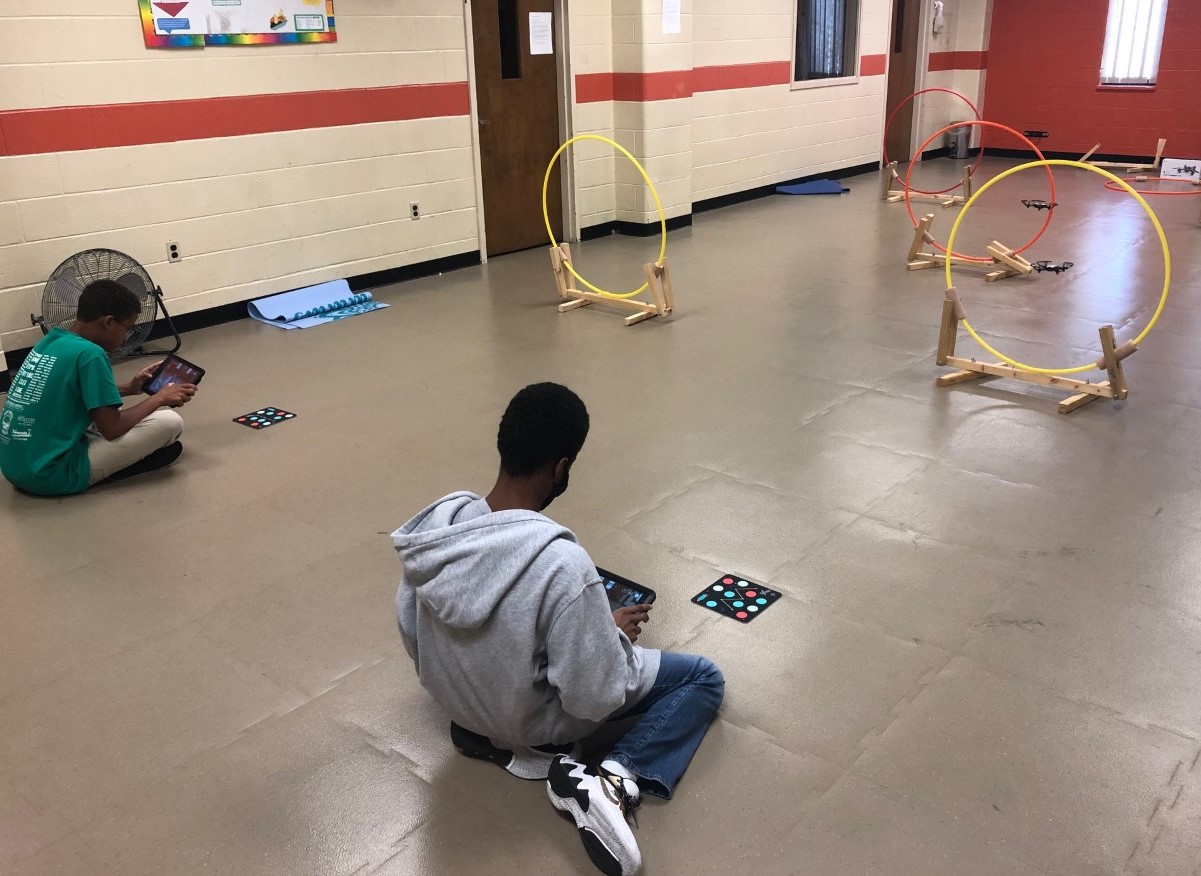Manual Drone Class Now Offered at Hampton Campus

A hands-on experience is a big draw for participants in the College's drone summer camps.
If drones are the future, and there is every indication they are, expect Virginia Peninsula Community College to be an area leader in the field. That has been evident this summer with an array of on-campus and off-campus events.
However, the most important news is, beginning with the fall semester, two new drone classes will be available on the Hampton campus. One of those (UMS 111) deals with manual flight. Previously, that class had been offered only at the Historic Triangle campus in Williamsburg.
"Because we're so close to the Air Force base, we couldn't fly here, but I've gotten a waiver from the FAA and I worked with the air traffic control at the Air Force base," instructor Julie Young said about the Hampton campus. "Now we're allowed to fly."
The class still will be offered at the Historic Triangle campus. The other new class at the Hampton campus is UMS 193, which covers surveying and mapping.
"That one's actually new to the whole Virginia Community College System," Young said, adding it will be available just at Virginia Peninsula's Hampton campus the fall semester.
Classes that allow students to learn the procedures are a good start, but having ones that provide hands-on experience is important. She compared it to a learner's permit for drivers. It doesn't mean you know how to drive, you just know the rules and regulations.
"It's the same thing for drones," she said. "It's really important we get them out and get them flying."
The UMS 111 class begins with two weeks of classroom instruction, followed by practical experience. That will include a field trip to a local neighborhood to fly over houses and take pictures, similar to what a real estate agent would do.
It took Young a lot of paperwork and a few months to add the manual flight class to the Hampton campus, which is in the flight path of Langley Air Force Base. Interestingly, had the class been held at the Peninsula Workforce Development Center, which is adjacent to the College, it wouldn't have been approved.
On days her students will be flying the drones outdoors, Young must notify air traffic control at the base, which in turn informs her how high the drones can fly, usually anywhere from 200 to 400 feet.
Young has been busy this summer with the College's drone program, leading two camps. One was a three-day event (Aug. 2-4) for ages 14-16, and the other was a four-day event (Aug. 8-11) for those 16-21. The camps were made available through a grant from the Department of Aging and Rehabilitative Services. Joining Young for the camps are Scott Bellows of the Virginia Space Grant Consortium, which is partnering with the College on the project, her son Seth Young, and Maureen Price, a DARS vocational counselor.
Participants in the Aug 2-4 camp received TRUST certificates of completion on their final day. Young said the certificate became an FAA requirement last June for all recreational pilots.
"In other words, you must pass the test before you fly a drone. And since they can now legally fly a drone as a recreational pilot, we gave them their own drone," she added.
The four-day camp is scheduled to include field trips to Newport News parks and Hampton City parks to take pictures and videos, which will be given to those cities to use in promotional materials or as they see fit.
